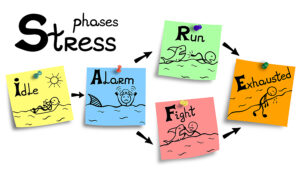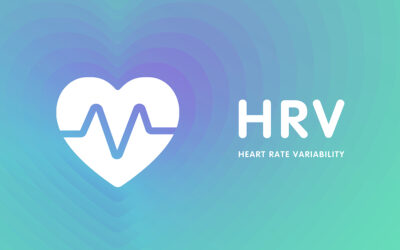“We can experience wildly strong emotions (provoking our bodies into an accompanying uproar) linked to mere thoughts.”
 In other words, we activate the stress-response in our minds in response to our thoughts. This is the message shared by Stanford University professor Robert Sapolsky in his book “Why Zebra’s Don’t Get Ulcers.” Psychological and social stress cannot be felt by a zebra that lacks cognition. That stress causes many of the slow-accumulation health problems seen in modern society.
In other words, we activate the stress-response in our minds in response to our thoughts. This is the message shared by Stanford University professor Robert Sapolsky in his book “Why Zebra’s Don’t Get Ulcers.” Psychological and social stress cannot be felt by a zebra that lacks cognition. That stress causes many of the slow-accumulation health problems seen in modern society.
Unlike the zebra, we are not generally exposed to the stress of a lion trying to make us his dinner. However, we do have constant deadlines, traffic jams, difficult relationships, or time pressures. After the chase, the zebra shuts down the stress-response. But we humans often just keep it revved up in high gear. It is not stress itself but the prolonged exposure to the stress-response that causes physiological changes in our body. As a result, we get sick.
Now, it’s bad enough that we stress out about things that are happening, right? But we also kick into stress mode when we worry about “what could be.” The worrying, unfortunately, has an equally destructive bodily affect. And, we even go so far as to worry about conditions or situations over which we have no control. For example, can you recall those sleepless nights in bed, ruminating about what could go wrong? Yep. That’s causing problems!
When you continuously activate the stress-response, which was intended for use during emergency, “fight-or-flight” situations like the zebra encountering a lion, you develop stress-related diseases. This has been scientifically proven! As the stress response starts, it creates a generic physical reaction. Unfortunately, it doesn’t matter if the stress is physical or psychological, actual or expected. It still has the same results!
Three Parts of the Stress Response
When your body activates the stress response, it goes through three steps.
First step: Alarm. This is the realization of a stressor.
Second step: Adaptation or Resistance. This is the mobilization of the stress-response system and the re-establishment of balance.
Third step: Ongoing Activation. When you’re here, you go through a frequent and consistent repetition of the above cycle. As a result, you have a situation where, “the stress-response can become more damaging than the stressor itself, especially when the stress is purely psychological.”

Physiological Actions of the Stress-Response
- Rapid mobilization of stored energy to fuel the muscles for movement including release of glucose, proteins and fats from the liver, muscles, and fat cells.
- Increase circulation of energy and oxygen by raising heart rate, blood pressure, and respiration.
- Reduce long-term, optimistic processes such as slowing digestion, halting tissue repair and growth, and decreasing reproductive functions – weaken sex drive, lower sperm and testosterone production, impair erections, stop ovulation, and harm pregnancies.
- Inhibit the immune system.
- Dull the pain response.
- Enhance memory and sensory skills.
As you can see above, the stress-response alters nearly all of the body systems. With repeated exposure, the body can have difficulty finding balance. This, then, causes various health problems. Some of them include things like metabolic disorders, cardiovascular events, gastrointestinal symptoms, body weight issues, improper development, reproductive problems, immunity diseases, pain perception abnormalities, memory malfunctions, sleep disturbances, and accelerated aging.
Stress Can Be Managed
There is hope! Near the end of the book, Sapolsky outlines stress management techniques. In addition to the common advice about exercise, religion and spirituality, meditation and social support, he also discusses control and predictability in life, which can raise or lower stress depending on the circumstances.
He also makes a very realistic statement about stress management techniques. “The realm of stress management is mostly about techniques to help deal with challenges that are less than disastrous.” Later, he goes on to state that they have little to offer people with profound difficulties, such as a homeless street person, refugee or terminal cancer patient. I found this interesting, as I have never heard anyone profess the limitations of stress management techniques, which are clearly there.
Over my nearly 20 years in the health promotion field, I frequently encounter people who don’t realize the effect stress has on health. Through this article, I hope I have enlightened you to the serious nature of uncontrolled stress in your life. Stress management starts in your mind. You may not be able to completely control your stressors, but you do have control over how you think and react!



